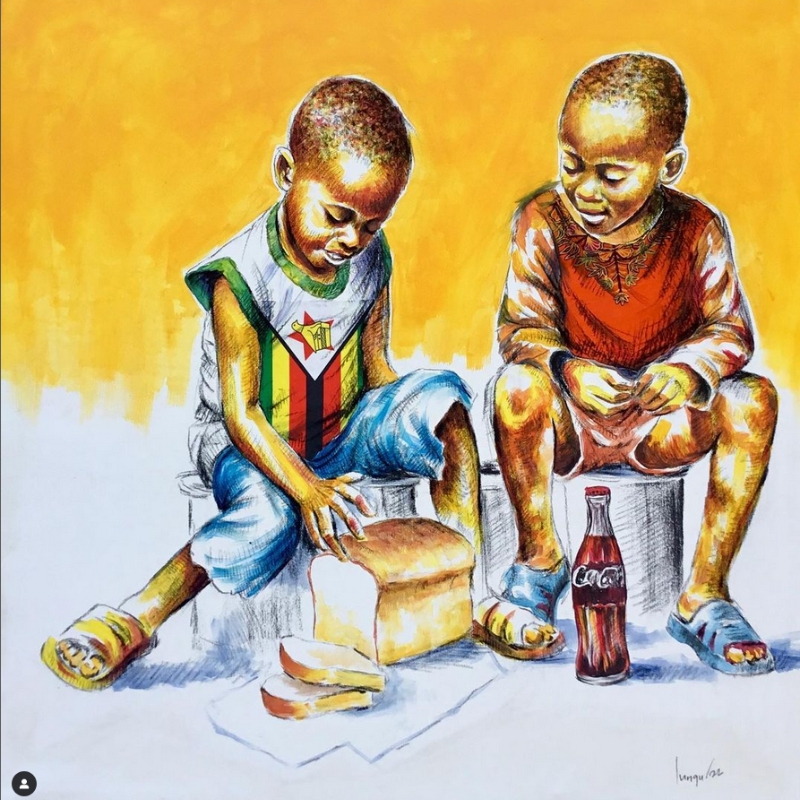The Significance of Food and Meal Times in Shona Culture
Food and meal times play a vital role in Shona culture. Sharing a meal is not just about satisfying hunger but is also a time to bond with family and friends. It is a time for conversation, laughter, and building relationships. Meals are often prepared with love and care, and the act of sharing food is seen as a way of showing hospitality and welcoming guests.
painting by Barry Lungu - Shona artist from Harare Zimbabwe
In rural areas, food is often prepared in large quantities and shared with others in the community. This practice of sharing food and meals is seen as a way of strengthening social connections and building relationships. It is an essential aspect of Shona culture, where the community is highly valued.
Furthermore, specific foods in Shona culture hold symbolic meanings and are associated with certain events or rituals. For example, traditional dishes may be prepared for special occasions such as weddings, funerals, and other celebrations. Sadza, a staple food made from maize meal, is often prepared for important events and is a symbol of unity and togetherness.
Another important aspect of Shona cuisine is the use of traditional herbs and spices. These herbs and spices are believed to have medicinal properties and are used in various dishes to enhance their flavor and nutritional value. For example, Mufushwa, a traditional Shona dish made with pumpkin leaves, is believed to have healing properties and is often prepared for people recovering from illnesses.
In conclusion, food and meal times are an integral part of Shona culture. It is a time for sharing, bonding, and building relationships. The act of preparing and sharing food is seen as a way of showing love, care, and hospitality. Furthermore, traditional dishes and the use of herbs and spices hold significant cultural and symbolic meanings. It is a celebration of community, tradition, and heritage.
